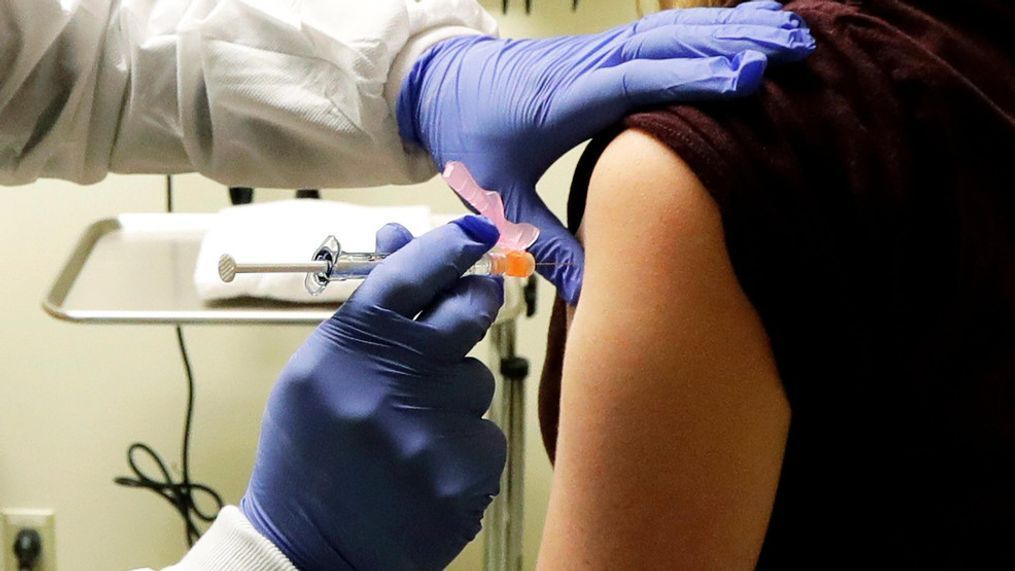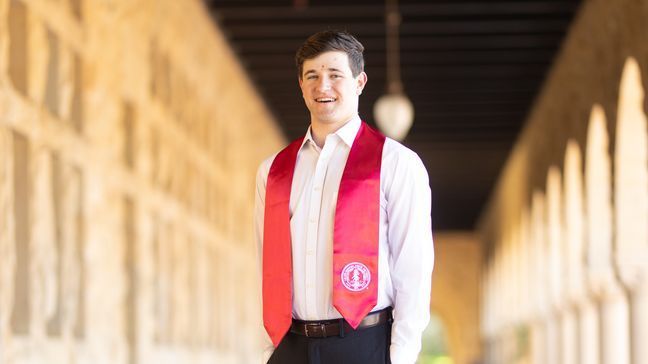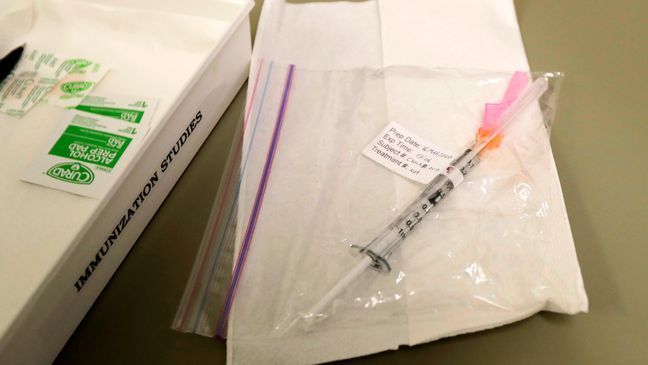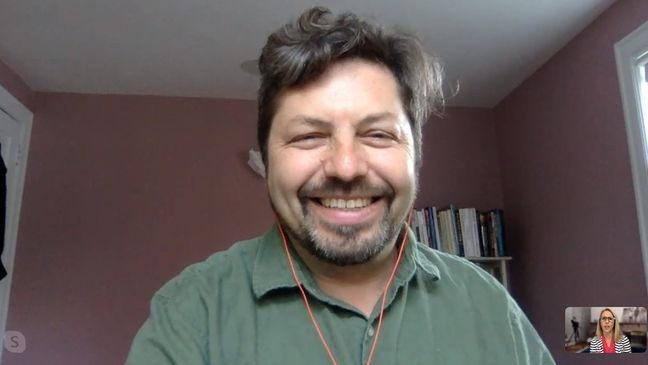Thousands volunteer to get coronavirus in hopes of helping find an effective vaccine
WASHINGTON (SBG) — From social distancing to masks and near-constant handwashing, we’re all taking steps to keep from getting COVID-19. So imagine volunteering to get the virus, on purpose. Spotlight on America talked with people willing to put their lives on the line to protect us all as part of potential vaccine tests down the road.
Gavriel Kleinwaks is a Ph.D. student at the University of Colorado Boulder. The Maryland native has a bright future in mechanical engineering. But she's potentially putting her future on the line to do something radical in this global pandemic: volunteering to get the coronavirus.
"If chosen, this might be one of the most important things I do in my lifetime," she told us about signing up to volunteer the same day she read about the option on social media. "We all know what it means to donate time. We all know what it means to donate money. But this felt like something I could do to donate my health. You can’t share your health with other people necessarily. This was a way to do that."
Stanford graduate Carson Poltorack feels the same way. Both he and Kleinwaks are among thousands of people from 52 countries who have signed up with an organization called 1 Day Sooner, offering up themselves as potential human guinea pigs in the battle against COVID-19. The organization, for which Poltorack handles communications, is tracking volunteers. As of April 30th, more than 8,200 people had volunteered. The group is also taking names of those willing to support human challenge studies, even if they don't want to participate.
"It really feels like an obligation," said Poltorack, who is headed to the University of Pennsylvania this summer to pursue a career as a physician scientist. "It feels like I live my life by a certain set of values and this is what my values tell me I should be doing in this crisis."
The coronavirus crisis is forcing scientists to think outside the box as they search for a vaccine. Among the dramatic ideas being proposed is the concept of a human challenge study, where volunteers get the virus on purpose to help test vaccines. Dr. Nir Eyal, a professor of bioethics at Rutgers University and Director of the Center for Population-Level Bioethics, published an academic paper with colleagues in March, proposing human challenge studies as a way to accelerate approval of potential coronavirus vaccines.
"The big attraction of this type of trial is that it's much much more rapid," Eyal said, explaining this type of human trial could shave months off the search for an effective virus. Human challenge studies are not new. They're already conducted for things like seasonal flu and malaria. But Eyal knows this is different, with vastly different complications.
"The main reason initially to be hesitant about these trials is it's not every day that doctors expose healthy volunteers to a virus that is lethal that is killing so many people around the world and for which we don’t have a cure yet," Eyal said.
There are obvious risks associated with human challenge studies of any type, but specifically ones where healthy individuals are infected with a virus that currently has no cure. That's why Eyal argues young, healthy volunteers would be ideal candidates because of their lowered risk.
"This could turn out on balance to be safer for these individuals because they’re anyhow likely to be exposed and anyhow likely to have problems accessing care, which won't be a problem inside the trial," Eyal told Spotlight on America.
Under Eyal's proposal, volunteers would be closely monitored and given access to the top-notch medical care they might not get outside of this type of trial. But if human challenge studies are given the go-ahead in the months to come, critics say ethics have to be front and center. There are a number of factors that have to be considered and addressed, from compensation to informed consent.
Even potential participants like Poltorack say there's great value in providing criticism and feedback about this type of study, evaluating issues from all sides. "Criticism is important and welcome," he said. "It’s a vital part of this process to make sure we’re doing this to the absolute highest standard."
Eyal argues compensation can't be part of an incentive to bring in volunteers for this type of human challenge study, saying it should be clear to the public that participants volunteered because they wanted to do something good and because it worked out for them medically or for their own personal reasons.
He's quick to point out other ethical concerns about people with disadvantages or limited access to healthcare being preyed upon having to be clearly addressed and avoided. And Eyal says it has to be abundantly clear what participants are getting into before this type of trial could begin.
"This is the kind of trial that you must have with the highest standard of informed consent. People should be triply checked for comprehending what this is about, what the risks are, any information we have we should share with them," said Rutgers bioethics professor Dr. Nir Eyal.
Many members of Congress share an interest in the controversial idea, which would need approval from the Food and Drug Administration should a viable vaccine come to the forefront. 35 members on both sides of the aisle signed a letter in late April, calling on the agency to consider human challenge studies.
The letter says, "Congress understands that a more risk-tolerant development process is likely appropriate in the case of a COVID-19 vaccine. In the case of accelerated human trials, justifiable risks may be taken by parallel testing of multiple dose levels, advancing more rapidly from phase to phase and potentially by challenge trials that involve deliberately infecting volunteers who have received candidate vaccines or placebos to confirm the efficacy of those vaccines and are at very low risk of serious disease from the infection."
Gavriel Kleinwaks understands how impactful volunteering could be. "This could be world changing," she said. "To help other people that way would be a gift."
There's no guarantee she'll be selected should a human challenge trial come to fruition. Volunteers would have to be selected from the existing pool and without a formulated study in the works, there's no knowing how many individuals would be needed. Depending on changes in the vaccine landscape in the months to come, experts tell us this kind of trial may not even be needed. But Eyal says he's already had interest from major funding organizations and other stakeholders in the industry.




